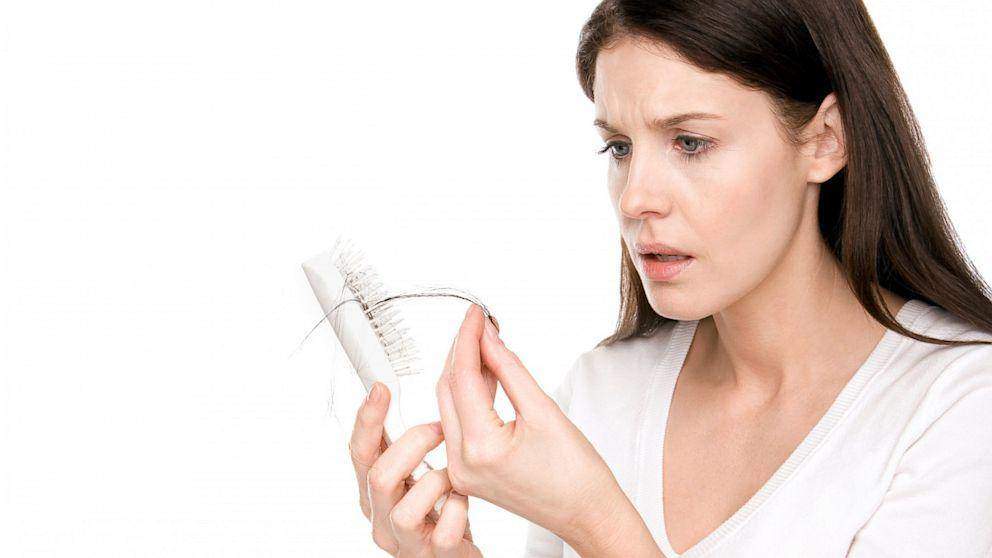What will be Waiting for You after Bariatric Surgery?
Bariatric surgery is the most important step of a patient in his/her journey of struggling against obesity. But it is also the beginning of a new life. Basically, obesity is a lifelong chronic disease. There is no operation, diet or medication that alone can offer a permanent solution. Therefore, if anyone tells you that you can get rid of obesity problem forever regardless of whatever you eat after bariatric surgery, he/she does not tell the truth. Surgery can provide you with long-term benefits only if healthy lifestyle changes are maintained throughout the life after surgery.

Diet and Liquid Consumption After Bariatric Surgery
In the first postoperative weeks, your surgeon and bariatric dietitian will give you information about certain rules and nutrition plans that you need to follow. That nutrition plan will be a progressive list containing clear liquids, soups, mashed foods, and increasingly more solid foods, respectively. In the first few months, it may be a little bit difficult to consume adequate amount of fluid. In this period, avoiding dehydration (a deficit of total body water) is also important for preventing constipation and kidney stone formation. Depending on the type of your surgical procedure, some vitamin and mineral deficiencies may need to be monitored and supplementation with medications from external sources may be required. These include multi-vitamins, vitamin D, calcium, iron and vitamin B12.
It is important to take 60-100 g protein a day after surgery, especially in early postoperative days. This amount may vary depending on the type of surgery, the patient’s medical characteristics, and the activity level. Particularly foods containing excess calories such as starchy foods, bread, pasta, crackers, refined grains, as well as sweetened foods, cakes, cream-cakes and desserts should be eliminated from the diet. Limiting carbohydrate intake to 50 grams a day prevents recurrent hunger attacks and weight regain.
Most Frequently Asked Questions After Bariatric Surgery:
Question: What vitamin and mineral supplements should I use after bariatric surgery?
Answer: Multivitamins, calcium, vitamin D, iron and B12 are the most important ones. Sometimes vitamin A may also be included after malabsorptive surgeries. If possible, chewable tablet forms are recommended. Vitamins intended for adults should be used; in other words, syrups for children do not work in adults.
Question: How long will I need to take vitamin supplements?
Answer: Depending on the type of surgery, you may need to take this support throughout your life.
Question: How much protein should I take a day?
Answer: 60-80 g a day is adequate for most patients. In some patients, greater quantities may be required depending on the type of surgery or other factors. In this regard, our bariatric dietitian will help you determine the amount you need.
Question: Should I take the whole protein in one dose?
Answer: Protein should be divided in more than one dose, which should be taken at more than one meal and healthy snack meals. The body cannot absorb more than 30 grams of protein at a time. In addition, protein is a type of nutriment that enables us to feel satiety for a long time. If the number of meals increases, the feeling of hunger and the risk of frequent eating will decrease.
Question: How do I need to consume protein? With protein powder, bars or formulas? How can vegetarians take protein?
Answer: There are many options intended for patient-specific needs and preferences. Our dietitian will give you the required information about protein sources.
Meat, eggs, dairy products, legumes are the protein sources available in our everyday foods. Protein sources also available in products derived from soy and brown rice. Protein shakes or protein bars are alternative sources. You need such alternatives more in line with the increase in the rate of your ability to tolerate normal foods in your daily diet.
Question: What does happen if I do not consume adequate amount of protein?
Answer: The body needs additional protein for being able to heal and maintain the body’s muscle mass during the period of rapid weight loss. Protein is also needed for the acceleration of your metabolism. If the diet does not contain adequate amount of protein, this need is met from the muscles, and this causes the body to get weaker with each passing day.
Question: Is coffee harmful, and should I avoid caffeine after bariatric surgery?
Answer: Caffeinated beverages have been shown to be as good as other beverages, in terms of hydration. However, since the stomach is extra sensitive in the first postoperative month, it is beneficial to stay away from caffeinated beverages. After that, your surgeon and bariatric dietitian will guide you. You should definitely stay away from high-calorie and sweetened versions of coffee.
Question: Why is water consumption so important?
Answer: Dehydration caused by inadequate water consumption after bariatric surgery is the most important cause of admissions to hospitals. Insufficient fluid consumption impedes the body’s ability to maintain its normal functions. Water is also needed for burning stored fat and converting it into energy. Therefore, you should definitely carry a water bottle with you. It is a good method to take small sips from time to time, before feeling thirsty. It is ideal to drink 6-8 glasses of water per day, on average. If you urinate 5-10 times a day with clear urine, it means that you take adequate amount of water. The symptoms of dehydration include the feeling of thirst, headache, constipation, and dizziness felt when sitting up and down. If you cannot consume adequate amount of water, you should definitely contact us.

Drug Use After Bariatric Surgery
A great majority of patients who are candidates for bariatric surgery suffer from many comorbidities such as diabetes, high blood pressure, high cholesterol and heart diseases. Significant improvements or even complete recovery are observed in such diseases of patients, who have undergone a successful bariatric surgery and have lost weight successfully. They can immediately stop taking all the drugs, in accordance with the recommendations of their bariatric surgeons and relevant physicians. Vitamin drugs needed to be taken after malabsorptive surgical procedures are the vitamin supplements having no harmful effects on the body. In other words, they are drugs added with intent to increase the dosage of vitamins, which are normally taken from foods. Therefore, it is not possible to compare them with compulsory medications used due to preoperative health problems.
Frequently Asked Questions About Drug Use After Bariatric Surgery
Question: How do the drugs that I use be affected by bariatric surgery?
Answer: The absorption of some medicines may change, depending on the type of surgery. In addition, the use of large-size tablets and capsules is not recommended in the early postoperative period. They may sometimes cause snagging. Therefore, your surgeon will recommend mouth-soluble and injectable forms of certain medicines, or you will need to take some medicines after mashing them. Some extended-release enteric coated drugs cannot be taken in the mashed form. On the other hand, it may be better to take some drugs after they are mashed and mixed with foods.
Surgical procedures such as gastric band surgery and sleeve gastrectomy have a slight or no effect on drug absorption. However, bypass and duodenal switch procedures significantly affect absorption. Some drugs such as antidepressants may need to be taken in considerably higher doses to produce the same effect. This matter needs to be discussed with the relevant specialist.
Question: Will my medicines be changed after bariatric surgery?
Answer: Yes, probably. As obesity-related diseases get healed, it may be possible to take certain medicines in lower doses or stop taking them. Patients with diabetes may need less insulin or may even stop taking insulin completely, depending on the type of surgery. Blood pressure and cholesterol drugs also require considerable dose changes in the first postoperative month, and their use may even be stopped. Such decisions should be taken by your physician. Do not attempt to adjust their dosages by yourself or stop their use completely.
Question: What are the drugs that should be avoided after bariatric surgery?
Answer: Your consultation with our team about this issue is important. Since antirheumatic analgesics from NSAIDs (Nonsteroidal anti-inflammatory drugs) may lead to gastric ulceration and irritation; they should be avoided after surgical procedures that involve bypass. Bleeding or puncture (both of which are serious complications) may occur as a result of marginal ulcers developing on the anastomosis line. They do not lead to death by can sometimes cause uncomfortable conditions that may last months, and may even require secondary operations and revisions of bypass.
Sometimes some surgeons do not recommend the use of NSAIDs after sleeve gastrectomy and gastric band operations. Corticosteroids such as are not recommended because they may cause ulcers and delay healing; however they may be needed in certain cases. The absorption of some long-acting, extended-release or enteric-coated drugs may be impaired due to bariatric surgery. The best thing to do is enable us to contact your relevant specialist physician, for ascertaining what medication will be affected. In addition, some medicines have an effect on weight gain. In such a case, the balance between the benefit of the medicine and the risk of weight regain should be investigated. Preferring alternative medicines with fewer side effects may be a solution in this regard.
Question: Will I need to use additional medicines after bariatric surgery?
Answer: You will have to use two medicines after surgery, regardless of whether you have used medicines before surgery. One of these is PPI, i.e. acid-reducing drug, for a period of 3 to 4 months. The other is Ursofalk preferred by some surgeons, which is intended for preventing the formation of gallbladder stones, and is recommended in the period of rapid weight loss.
Question: Can I take all the drugs after mashing them?
Answer: You should not mash certain drugs due to their production technology. In general, all uncoated immediate-release drugs can be mashed. Therefore, it is important to consult with us and your relevant physicians about the way of taking each drug.

Physical Activity After Bariatric Surgery
Physical activity is of great importance for long-term weight control. Each patient may have different needs and abilities. As you progress in your fitness program, your body will tolerate the same activity more effectively and easily. This means that you will burn less calories with each passing day. As your weight loss increases, the calories burned during the exercise performed at the same inevitably decrease. Therefore, you should also increase the duration and intensity of your fitness activity in the course of time. We recommend you to get advice from an exercise consultant about this issue.
Question: How much do I need to exercise?
Answer: Current guidelines recommend at least 150 minutes per week of moderate exercise. These can be brisk walking, jogging, Zumba, swimming or the use of exercise equipment. Please note that the threshold for safe toleration of exercise may vary from person to person. It is very important to determine these amounts and durations on the basis of your specific condition.
Question: How long after surgery can I exercise?
Answer: This depends on the type of exercise to be performed. You can start walking in the evening of the day of surgery. You can increase the duration and intensity of the exercise as you get better. You can start swimming from the 20th postoperative day, and light gym exercises from the 1st postoperative month.
Question: What kind of exercises should I do?
Answer: Combining the aerobics (cardio), resistance, and flexibility exercises will give the best result. You can find the best one for you by trying different exercise programs. What is important is to make an enjoyable program that you can routinely implement at a place close to your home if possible Warm-water exercise programs are perfect for patients with joint problems. If you cannot go to a center, exercises done carefully at home under the guidance of exercise videos will also work.

Psychological Changes Experienced After Bariatric Surgery
As can be expected, in people doing great changes in lifestyle and physically undergoing a great change, a clear difference appears both in the sense of self and what other people think about them. As some patients make changes in their lifestyles and succeed in managing their weights, a clear increase occurs in their self-confidence, as well. Some others continue to see themselves as obese; or more precisely, they consider themselves to be still obese even if they lose weight.
Strong relations get stronger when experienced changes and difficulties are shared. On the other hand, weak relations can be damaged especially due to impairment of equality between partners. Therefore, expecting that weight loss with bariatric surgery will be a rescuer in problematic relationships is like thinking that childbearing can save the relationships in declining marriages.
The balances in your workplace will also change in parallel with the differentiation you experience. Co-workers of some patients support them and celebrate their success, while others may be less supportive. In short, all patients should know the facts that they are on a long journey, the road has bumps and pits from place to place, and they should be mentally prepared to withstand all these. These challenges may range from interpersonal conflicts to marriage-related stress, from surgical complications to interrupted weight loss.
Our eating habits and frequency are usually affected by our feelings, stress, and boredom. This may also extends from careless eating to eating disorders. These conditions are considerably frequent but not always clear. If you find yourself eating for only stress-relief or despite you are not actually hungry, you should get support from your surgeon or a psychiatrist specialized in therapy in his/her team. If such problems are intervened promptly, things can be put back on track.
Interrupted Weight Loss or Weight Regain After Bariatric Surgery
First of all, you should know the fact that your life will change permanently after the bariatric surgery. Your body will also change in line with this, and will give you a greater power to overcome your obesity problem that develops in relation with genetic, metabolic, and environmental factors and lifestyle. However, the factors creating this unhealthy “weight set value” are quite potent, and the body will struggle to achieve that value just like a thermostat set for very high temperatures. In this regard, the body’s self-defense mechanism and its mechanism of maintaining the achieved weight are very effective.
As the patient keep losing weight with bariatric surgery, the body will try to determine new set values for itself. This causes periodic pauses in the weight loss process. This is a normal situation that should be expected. When you reach these plateaus; in other words, when you stop losing weight, do not be discouraged. These are normal and essential parts of the weight loss adventure.
Sleep and Stress
A healthy sleep routine is of key importance in successful weight loss. A regular sleeping time is not important for only children. Sleeping too late and having inadequate sleep have been proven to be in relation with weight gain. What you can do for making your sleep routine healthy include keeping away from evening coffee, exercising in early hours of the day, and designing a quiet, dark and comfortable bedroom.
Many patients have sleep apnea before having obesity surgery, and some of them use a CPAP device. One of the comorbidities that get healed earliest after surgery is sleep apnea. However, you should also continue your sleep apnea treatment as long as it is necessary. You should consult with us or your chest disease specialist about the changes that need to be made in the course of time.
Coping with stress is of importance for a successful post-operative period, as well. Mismanaged stress may derail you by leading to bad choices. As before surgery, stress will adversely affect your success in weight loss after surgery as well. Soothing habits such as strong relationships based on open communication, regular exercise, meditation, yoga will help you cope with stress. Internet support groups are also very important in this regard. Such groups enable you to benefit from the experiences of a large patient population dealing with the same problems with you, and ask questions directly to experts. Of course, we recommend you to be careful against brokers and sellers, who act insistently in such groups (as specific to our country), and to report them to the relevant authorities. Click here to join our Facebook Obesity Support Group,one of the oldest and largest communities on the Internet.
Tobacco Smoking and Hookah Smoking After Bariatric Surgery
You are recommended to stop using tobacco products before all bariatric surgeries, for reducing the risk of complications. In fact, the surgical process and the subsequent period, during which the sensitivity to the bad smells is high, will provide you with a very good opportunity to quit smoking.
Why do I Need to Quit Smoking Before Surgery?
First of all, all tobacco products reduce blood flow to the tissues, and lead to delayed tissue healing. Smoking-related disorders:
– Increased coagulation and embolism: This is the most common cause of death after bariatric surgery.
– Marginal ulcer (gastro-intestinal ulcer) after gastric bypass
– Heart diseases
– Stroke
– Chronic obstructive pulmonary disease
– Increased risk of fracture
– Cataract
– Mouth, throat, esophagus, larynx, stomach, pancreas, urinary bladder, uterus and kidney cancers
Question: How Long Before Surgery Should I Stop Smoking?
Answer: If you want to reduce the risk of fatal embolism and pneumonia, you need quit smoking six weeks before surgery. Quitting smoking one or two weeks before will not provide you with any benefit, and may even increase certain risks. The biggest risk with smoking before surgery comes from the nicotine content. Nicotine is a chemical stimulant that can contribute to increased health complications before, during, and after surgery. For those looking to quit smoking before cosmetic surgery, electronic cigarettes may seem like the perfect tool. But don’t trade your cigarettes for vaping just yet. You will get the best vape kits options on vape shop in the UK.

Alcohol Consumption After Bariatric Surgery
Question: Can I drink alcohol after obesity surgery?
Answer: Alcohol consumption after bariatric surgery is definitely inadvisable. Alcohol is a substance that has an extremely low nutritional value but an extremely high caloric content Therefore, it is totally inconsistent with your weight loss goal. After bypass surgery and sleeve gastrectomy, alcohol absorption changes as well, due to an enzyme in the stomach. Absorption can be much faster. Since absorbed alcohol is more effective, bariatric surgery patient reach higher levels of alcohol and keep the high levels for longer times compared with other patients. In some patients, alcohol consumption may increase and lead to alcohol addiction. Such people are usually those who had eating disorder before surgery and use eating as an escapeway.

Pregnancy and Childbearing After Bariatric Surgery
Question: Is it safe to get pregnant and give birth after having bariatric surgery?
Answer: You are recommended to avoid pregnancy for a period of 12 to 18 months after bariatric surgery. By this means, you can expect to achieve the maximum weight loss and a stable weight. It is recommended not to get pregnant in early postoperative period, due to very limited food consumption, rapid weight loss, and related metabolic changes.
Question: I could not get pregnant despite the lack of contraception up until now. So, do I need to be concerned this regard and do I need contraception from now on?
Answer: You should be ready for a serious increase in reproductive capacity after bariatric surgery. Therefore, even if you are not protected from pregnancy and do not get pregnant despite this, you should definitely need contraception after bariatric surgery. Especially after bypass surgery, birth control pills may be less effective on obese patients. Therefore, other methods should be preferred. In case of pregnancy, you should definitely contact a bariatric surgeon and a gynecologist expert in risky pregnancies. Closely following-up patients is essential, especially in terms of vitamin mineral losses.
On the other hand, it is possible to get pregnant and give birth in a healthy way after bariatric surgery, as long as the rules are complied with. Studies have proven that expectant mothers, who have undergone bariatric surgery, are at a reduced rick of pregnancy diabetes and pregnancy hypertension called ‘eclampsia’.
How does it feel to lose weight rapidly after bariatric surgery?
You can lose weight highly rapidly especially in the first 3-6 months but this may cause you to feel weak from time to time. You may also experience, from time to time, a pain in different parts of your body, dried skin, hair loss or weakened hair, as well as emotional fluctuations. These problems will disappear as your body adopt weight loss and when your weight becomes constant. In this process, it is important to take adequate amount of protein and vitamin support, based on the advices of your bariatric surgeon and dietitian.
In the early postoperative period of bariatric surgery, it is normal for you to feel unhappy, and even as though you have fallen into emptiness or made a big mistake. The realities of life after surgery may be different from what you expected and hoped before surgery. The continuance of some habits, feelings or concerns after surgery may be surprising for you.
If you think that after surgery you will never want to eat, never crave foods, and always become resistant to the attraction of high-calorie foods, you may get disappointed. If you hope that your partner, friends, and family will treat you differently after you lose weight, you may be wrong. If you expect that your depressive or irritable mood will change in consequence of bariatric surgery and weight loss, .your expectation may not be achievable. You may miss some rituals, which are especially based on eating and drinking with your family or friends. In addition, complications may even get worse due to problems encountered in the healing process, and in case you compare your condition with other patients. You should be prepared for all these and note that the struggle against obesity is a long-term struggle to be won by only those who withstand.

How will the Eating and Drinking Habits Change After Bariatric Surgery?
Mostly in the evening of the day of surgery or in the first postoperative morning, you can begin to drink water in small sips. By the second day, you will begin to consume higher calorie drinks such as apple juice and soy milk. In the first postoperative week, you will be fed with clear liquid foods (compote juices, broth). By the second week, a little denser soups and protein suspensions will be waiting for you.
When you begin to eat mashed foods after the 2nd week, your discomfort will considerably decrease in terms of both flavor and satiety. In fact, most of our patients state that they hardly feel hunger in these periods. It is a useful habit to chew gum in the periods when solid foods are not consumed. It satisfies the chewing instinct, activates the muscles, and also provides benefit to digestion by increasing the movements of the stomach and intestines. You can begin to consume normal solid foods in the 4th-6th postoperative week on average.
You may initially feel satiety very fast in the period of solid food intake. The volume of the new stomach pouch is in its smallest size during the early postoperative period. Even if it gets a little bit wider in the course of time, its volume never exceed the size of a small bowl. The capacity of a normal stomach is 4-5 times higher.
When you begin to consume solid foods, it is important to chew each bite thoroughly. This means an average of 20-30 times chewing. The food must be completely mashed before swallowing.
Solid foods swallowed before chewed properly may lead to blockage in your new stomach or gastro-intestinal tract. Such a condition manifests itself with a severe pain behind the ribs, nausea and vomiting. In case of such a blockage, the worst thing you can do is drink water to wash it down.
Your meals should last minimum 20 and maximum 30 minutes. You will need 6 small meals instead of 3 big meals a day. You should abstain from having snacks between the meals. Especially certain foods such as pasta, bread, raw vegetables and dry meat, cause pain and discomfort when swallowed before chewed properly. Try not to consume such foods or to consume them carefully.
It is reasonable to consume 8 glasses of water or calorie-free fluid per day on average. Abstain from consuming water or beverages during meals. The best way is to drink them 60 minutes before or after meals. Otherwise, the fluid will cause your stomach to get emptied faster and will consequently cause you to feel much hunger after a shorter period of time. It is important to consume liquids in small sips, as in the consumption of solid foods. Using a pipette may cause you to swallow air; therefore, it is better to sip from a glass.
Do I Still Need to Calculate Calories after Bariatric Surgery?
After your surgery, I, our coordinator and particularly our bariatric dietitian will give you information about what you should eat and what you should avoid. Complying with our dietary rules is of great importance, especially in early postoperative period. These instructions should not cause you to labor under a misconception saying “I still need to be on a diet, but then why I have undergone that surgery”. What is meant here is that you should not equate healthy eating habits to diets you have tried many times but which have resulted in failure.
A primarily protein-based diet that includes vegetables and whole grains is the best way to lose weight and maintain the new weight. Even if you have undergone a surgery, you still need to abstain from high calorie foods. You should stay away from foods that contain too much oil, processed sugar or carbohydrates. If you keep eating after feeling satiety, your stomach gets larger. Such a condition undermines your weight loss and even causes you to gain extra weight. You should stay away from all kinds of drinks (apart from your meals) that contain sugar, fructose or corn syrup, due to their high caloric contents. You should stay away from carbonated beverages as much as possible. After 5-6 months, you can drink natural mineral water, on condition that you comply with other rules such as not exaggerating the amount and not mixing them with solid foods. Alcohol should definitely not be consumed in the early postoperative period of bariatric surgery. Alcohol should also be avoided in the following periods because its caloric value is high and it provides no nutrition benefit.
Staying Healthy After Bariatric Surgery
It is very important for you to consume only essential foods while avoiding high caloric intake in your life after bariatric surgery. You should know that taking the required proteins, vitamins and minerals in the period of rapid weight loss accelerates your recovery. Please note that if you have undergone gastric bypass surgery, you will need to regularly take these extra vitamin and mineral supplements in the rest of your life. Let us remind the fact that your regular checks intended for controlling whether you lose muscle and water and monitoring your biochemical values are very important for your success.
Changes that will Occur in Your Body After Bariatric Surgery
It is clear that changes will also occur in your body contours when you lose weight to a great extent. Such changes will usually be in the form of severe sags in the skin, mostly in the regions where adipose tissue accumulates. The skin has lost its elasticity to regain its previous shape when the adipose tissue under it melts. This can vary depending on the quality of the skin, age, genetic characteristics and whether or not the patient exercises; however, an aesthetic intervention may be required usually after the ideal weight is achieved. The areas that require intervention are usually the abdomen and waist area, the arms, the inner parts of the calves, and the breasts.

Things that You Want to Know About Hair Loss After Bariatric Surgery
Hair loss after bariatric surgery is a common problem, which is more annoying especially in female patients. It is seen in about 40% of patients. However, all patients want to lose weight both naturally and successfully while still having beautiful hair. Hair loss associated with bariatric surgery is a type of normal hair cycle, and is referred to as ‘telogen effluvium’. In other words, it is a natural process, different from hair loss that results in baldness. It usually does not last longer than 6 months. It is similar to hair loss in infants that occurs in the first months of their lives.
It is like a well-balanced machine that fights external forces and repairs itself. However, this perfect balance can also be impeded as you get older and your lifestyle undergoes change. Situations not suitable for a healthy life, such as excessive eating, stress, and heavy exercise, accelerates this. Also in daily life, we lose a certain portion of our hair every day. Many external factors, such as stress, genetic factors, environmental factors and diet may cause abnormal amount of hair loss in both women and men.
As for hair loss after obesity surgery, it is usually caused by a dramatic decline in the intake of nutrients and vitamins. What is meant here is different from vitamin deficiency. The sudden change in the absorption of calories and nutrients creates a shocking effect in the body. Bariatric surgery formats your whole metabolism.
Bariatric surgery is intended to rebalance the body. However, bodies of obese patients are generally accustomed to consume more than they need. This means that the caloric balance needs to be changed after surgery, for achieving a healthier lifestyle. This shock leads to temporary hair loss, because directs nutrients and vitamins to other parts of the body, especially in the periods of recovery and rapid weight loss.
Even the surgical procedure itself constitutes a stress that may cause hair loss. Each patient’s body gives a different response to similar traumas. This makes it impossible to identify and predict which patients will be more affected. Some patients suffer from mild or no hair loss, while some others have hair loss problems to serious extents. It should be kept in mind that other potential causes of hair loss should also be investigated in the postoperative period, if there is excessive hair loss.
No matter what the cause of hair loss is, everyone feels considerable stressed when seeing how his/her hair is being lost. Patients who have undergone bariatric surgery should keep in mind that the hair loss is almost completely temporary.
Why I am Losing My Hair?
There can be many factors causing your hair loss. These can be summarized as surgery, acute disease, trauma, chronic diseases such as liver diseases, hormonal imbalances such as hypothyroidism, low protein consumption, anorexia, chronic iron deficiency, heavy metal poisoning, beta blockers, excessive vitamin A consumption, or anticoagulants.
Any surgical procedure intended for weight loss may cause protein and iron deficiency in your diet, especially if you do not adequately comply with nutritional advices and if you do not use vitamin and mineral supplements. Thus, hair in the normal hair cycle can grow shorter, thinner and weaker.
Bariatric surgery also causes changes in hormone levels. (such changes are also responsible for a certain part of the effectiveness of bariatric surgery and they are useful) These fluctuations affect hair growth, as well. As the patient approaches his/her ideal weight, this significant weight loss begins to decline, and hormone levels get stabilized at more normal levels.
When will I Begin to Lose My Hair?
Hair loss after obesity surgery is usually occurs between the 3rd and 6th postoperative months. It may be seen earlier or later in some patients. When the patient’s weight loss and eating habits get stabilized 12 to 18 months (on average) after surgery, the hair regains its previous strength. In surgical procedures that reduce absorption such as gastric bypass, gastric bipartition, and SADI-S, the risk of hair loss is higher compared to that in restrictive procedures such as gastric band and sleeve gastrectomy.
How is Hair Loss Prevented?
The best method of protection required to be used by patients, who have undergone bariatric surgery, is to strictly comply with the guidelines given by bariatric surgeons and dietitians. Such advices are very important in the period of rapid weight loss. When the weight loss ends, the hair will begin to grow again and regain its previous strength.
What Should I do for My Hair Loss?
Please note that this type of hair loss is always reversible as long as you have no chronic illness or genetic causes for hair loss. Therefore, first relax and stop worrying about that issue. 5-15% hair loss is natural, due to the surgical stress and weight loss. It rarely lasts longer than 6 months, and the lost hair completely comes back. Consult with your surgeon to make sure there is no factor not associated with a chronic disease or nutrition. Do not make exaggerated additions to your diet, besides the nutritional scheme recommended by your surgeon. If you exaggerate your protein or caloric intake, such an increase sabotages your weight loss. Keep in mind the fact that hair loss does not kill, but obesity kills.
Make sure you take a multivitamin that contains adequate amount of vitamin B, folate, zinc and biotin. Do not forget vitamin D and B12 supplements. Since high-dose vitamin A and zinc can be harmful, avoid using such supplements. If you have iron deficiency, consult with your surgeon and bariatric dietitian to take an iron supplement. Since B vitamin supplements do not cause any harm, you can use them.
Make it a habit to eat fish several times a week because it is rich in omega 3. If you cannot consume fish, consult with your surgeon or bariatric dietitian about fish oil supplements.
How is the Treatment of Hair Loss?
Since it is a temporary condition, there is no need to make any addition to your routine post-operative medication and diet treatment. There is no miracle medicine that can prevent or reverse hair loss. Therefore, do not waste your money on it. For avoiding overdose, do not use preparations such as zinc and iron in particular.
Any externally applied substances will have no effect on your hair loss. Certain drugs such as minoxidil are known to stimulate hair growth. Although their effect of stopping effluvium could not be proven, they may be partially useful.
